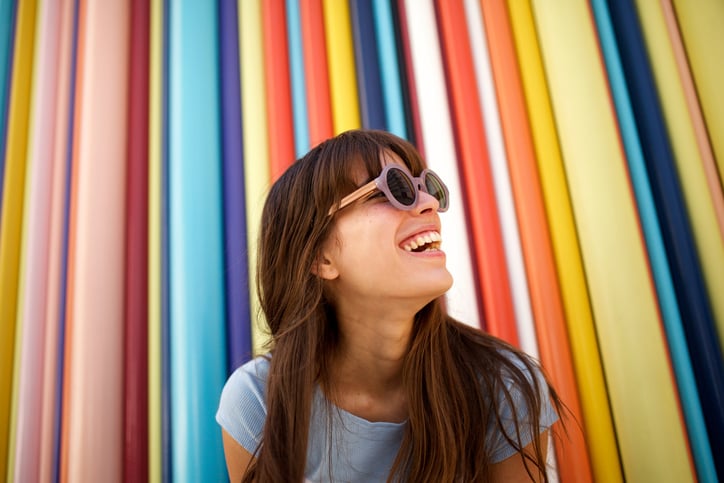A notice from the Economist that the largest category of religious identification is nothing in particular combines with phrases I heard recently while traveling.
- Work comes first!
- I postponed vacations for five years.
- No, I do not want to switch seats so I can sit next to my husband.
So much for pandemic-driven togetherness and a re-examination toward kindness and life-balancing priorities! So much for renewed confidence that the larger community in which we live intends to serve the flourishing of the world for our grandchildren's grandchildren rather than the expedient moment! As a needed antidote I pulled and updated a sermon I preached in Eau Claire, Wisconsin some years ago....

When my now adult son was eight years old, he accompanied me on a trip to Bluffton, Ohio, where I preached at a congregation near the campus of Bluffton University–the university that gained notoriety when their baseball team plunged over an overpass in Atlanta, killing several players. The congregation had asked me to come and preach about the subject of Christians and money. At the time I was in the middle of leading The Giving Project, a stewardship education project on behalf of several Anabaptist denominations, so it was a subject where I’d spent a considerable amount of time.
The congregation warmed to the subject, both in the worship service and in some question and answer time that followed. A few days later, Zach gave me a poem he wrote after listening to his father’s preaching– astute words from an eight year old.
MONEY
Money is very powerful
It can go places you can’t go,
but in some ways you are more powerful than money.
You can rip it.
You can spend it.
You make it do what it does.
There are more reasons that money is so powerful.
It is so powerful that it keeps you alive by buying the food you eat and the water you drink.
It is so powerful that it buys whatever you want.
Don’t let the money burn a hole in your pocket.
Good-bye.
To live with my son's approach to money requires a fair bit of contentment! When you are not contented, money controls you. When you are not content you are restless and stirred by anxiety. You are the one who gets spent instead of money. This type of contentment about material supply is a theme Paul addresses in the closing verses of Philippians.
Throughout this letter to one of the first Gentile congregations, Paul encourages his readers to finish strong . They had become a church in a community that harassed them. Paul had been thrown in prison there as he was now in Rome as he dictated his letter. There was conflict in the congregation and false teachers were urging them to change their understanding of the gospel. In short, there were reasons for them to consider backing down and not following through with their faith. Paul’s letter urges them to remain firm. Interestingly, a deep sense of contentment is one of the ways Paul indicates we can finish strong. This, because contentment crowds out anxiety.
Let’s bring to mind some of Paul’s statements about finishing strong before we look more closely at his statements about contentment at the end of his letter :
-
He who began a good work in you will carry it on to completion (1:6)
-
And this is my prayer . . .that you may be pure and blameless until the day of Christ (1:9-11)
-
Whatever happens, conduct yourselves in a manner worthy of the gospel of Christ (1:27)
-
Continue to work out your salvation with fear and trembling (2:12)
-
Hold out the word of life–in order that I may boast on the day of Christ that I did not run or labor for nothing (2:16)
-
I press on to take hold of that for which Christ Jesus took hold of me . . . .I press on toward the goal to win the prize.(3:12-14)
-
Let us live up to what we have already obtained (3:16)
-
That is how you should stand firm in the Lord (4:1)
-
And the peace of God, which transcends all understanding, will guard your hearts and your minds in Christ Jesus (4:7)
After underlining this repeated theme to a congregation he loves deeply, Paul brings the letter to a close, thanking the Philippians for the ways they had supported him materially. The rambling thank-you comes in three sections:
-
Paul thanks them and thanks God for the gifts the Philippians sent him.
-
Paul wants them to know he did not need what they sent him because he was already content with his circumstances. He is grateful, however, for all they have done.
-
Paul blesses the Philippians, asking God to meet their needs just as Paul’s needs have been met.
Paul is persecuted and in prison as he writes these words. He has already endured extreme stress–threats on his life, physical beating, imprisonment and public ridicule for being a messenger of the gospel. So how can he claim to be contented?
To be contented in this way one must be able to distinguish between needs and wants. We want a spouse. We want our family to get along. We want a meaningful job. We want a better income. But what we need are loving relationships, food, drink, warmth and shelter. When we understand the difference, we can realize and appreciate that God is meeting our needs.
And when we appreciate that God meets our needs, we are renewed in our faith and can experience contentment–what Paul models for his readers.
When one is contented it does NOT mean a person has no passion or sense of personal calling. Rather, they are better able to focus on their passion because they are not distracted by restlessness.
When one is contented it does NOT mean a person is numb to stimulus or need. It does mean, however, that they are not driven by them. They have mastered themselves and are able to dictate how they will act to fulfill both desire and need.
When one is contented it does NOT mean a person has surrendered to their circumstance, even if it is a circumstance filled with suffering. Rather, they are able to focus on what one can do to be faithful–even when suffering–and to find joy in that faithful action.
When one is contented it means they have found freedom from their wants. Druthers do not dictate their life.
Think of it this way:
When I am not free, I am stuck
When I am stuck, it means I am in prison–
behind bars of my own making
When I am in prison, it means I am dying before I am dead.
When I am dead before I am dead, I kill joy in others,
making it hard for them to know contentment.
But when I am free,
No bars can contain my spirit!
I can live deeply, profoundly–even when I am dying!
And even in my dying, God’s Spirit is able to renew faith and joy in others through me!
_____________________________
My first wife Lorie and I attended college together. We had a classmate named Denise who died before the end of our Sophomore year. Her youthfulness and future had been entirely decimated by the disease that ruined her musculature and led to multiple amputations of her limbs. Yet, her spirit was unbounded and less troubled than our own. She rejoiced in each day of extended life while we worried about our grade point averages. I remember marveling at her spirit each time I visited her in the hospital. My memory of her contented spirit has been with me throughout my adult life, and has set a benchmark for how to face the struggles Lorie and I knew through her own sixteen-year battle with cancer.
Lorie and I were repeatedly asked to put our experiences and how we approach suffering into writing. In the book Fighting Disease, not Death* that we finally did write, we describe a time when our children were a babe in arms and a toddler. Lorie and I were privileged to hear Joni Eareckson Tada speak at the old RCA Dome in Indianapolis. She was paralyzed in a diving accident as a teenager, but has used her chair as a platform to sing, paint, write, speak and host a radio program for many years.
The place was packed and there were hundreds of people in the front rows that made the place look like a hospital ward. Wheel chairs, hospital beds and people who needed assistance to find their way or to sign the spoken words so that communication could take place were front and center. We wondered if this is what it was like for Jesus during his earthly ministry–people coming from everywhere with their sick, crippled, palsied and possessed friends and family members, hoping for a word, a touch, or a prayer that might bring healing.
The lights went down in the house and spotlights flooded the stage. The audience quieted as Joni was introduced and wheeled onto the stage. But somehow, in the process of transporting her to center stage, her catheter tube disconnected, the bag emptied, and her urine began pooling around her on the floor.
She looked down and observed the problem, telling us what had had happened. And then, in the middle of her gathering waste, and with the heads of all those suffering souls nodding their affirmations, she testified beautifully to the grace of God and the contentment she had found in her helplessness.
It became such a profound memory for the two of us that it was difficult to refrain from weeping whenever we spoke of it. That moment, as much as any other, reminded us of why we battle the human limitations we face while ceasing to worry about the what and when and how much questions of life.
So in the spirit of my eight year old son’s poem:
May we be people
Who appreciate the gifts we have been given
Who share generously as we care for those who lead
And who know the fruit of renewed faith and joyful spirit: contentment
Don’t let your life burn a hole in your pocket.
Good-bye.
Are you facing into the Third Turn of Executive Leadership? We'd love to talk with you about joining an upcoming Maestro-level leader cohort.
Set your browser to www.maestrolevelleaders.com.
Tags:
Suffering, Mark L. Vincent, Design Group International, Whorled Viewz, Maestro-level Leaders, The Third Turn, The Third Turn Podcast, Kristin Evenson
July 22, 2021
Comments